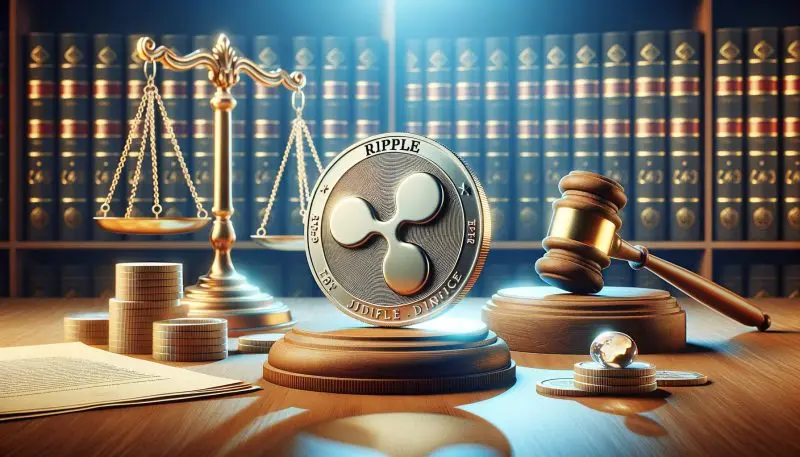Introduction
In the ever-evolving world of cryptocurrency, few stories have garnered as much attention as the legal battle between Ripple Labs and the U.S. Securities and Exchange Commission (SEC). Ripple’s native digital asset, XRP, has faced significant volatility due to the SEC’s allegations that the cryptocurrency should be classified as a security. This ongoing legal dispute is not only shaping the future of XRP but also has profound implications for the wider cryptocurrency market. In this article, we will delve into the details of the Ripple SEC lawsuit, examining its history, impact, and potential outcomes for the crypto community.
What Is Ripple (XRP)?
Ripple, founded in 2012, is a technology company that provides real-time payment solutions. Its digital currency, XRP, is used to facilitate fast and low-cost cross-border transactions. Unlike Bitcoin and other cryptocurrencies, Ripple is primarily designed for use by banks, payment providers, and other financial institutions. XRP aims to streamline the international payment system, offering a more efficient alternative to traditional banking methods.
Key Differences Between Ripple and Bitcoin
While both Ripple and Bitcoin are cryptocurrencies, they serve different purposes. Bitcoin operates as a decentralized digital currency, primarily used for peer-to-peer transactions, while Ripple focuses on enhancing the global financial infrastructure. XRP, unlike Bitcoin, is not mined and was pre-mined by Ripple Labs, which controls a large portion of the supply. This distinction has played a significant role in the SEC’s legal actions against Ripple.
The SEC’s Lawsuit Against Ripple
The SEC filed a lawsuit against Ripple in December 2020, alleging that the company had conducted an unregistered securities offering by selling XRP to investors. The SEC argues that XRP qualifies as a security under U.S. law and, therefore, should have been registered with the SEC. Ripple, on the other hand, maintains that XRP is a digital asset and not a security, which is the crux of the ongoing legal dispute.
Why the SEC Filed the Lawsuit
The SEC’s decision to file the lawsuit was based on its interpretation of the Howey Test, a legal test used to determine whether an asset is classified as a security. According to the SEC, XRP’s sales meet the criteria of a security offering, as they involve an investment of money with the expectation of profits derived from the efforts of others. Ripple disputes this classification, arguing that XRP is more akin to a currency or commodity.
Key Points of the SEC Lawsuit
The SEC lawsuit against Ripple revolves around several key points:
- Allegations of an Unregistered Securities Offering: The SEC claims that Ripple’s sale of XRP to investors was an unregistered offering of securities, violating U.S. federal securities laws.
- Ripple’s Defense: Ripple argues that XRP is not a security and that its sales should not be subject to SEC regulations. Ripple has also raised concerns about the SEC’s inconsistent treatment of other digital assets like Bitcoin and Ethereum.
The Impact of the SEC Lawsuit on XRP
The SEC lawsuit has had a significant impact on XRP’s price and market performance. Upon the announcement of the lawsuit in December 2020, XRP’s value plummeted as exchanges delisted the asset and investors grew uncertain about its future. Despite this, XRP has shown resilience, and its price has fluctuated based on key legal developments.
Investor Reactions and Market Volatility
The legal proceedings have created uncertainty in the market, causing volatility in XRP’s price. Many investors have been closely monitoring the lawsuit, with some choosing to hold their XRP assets, while others have decided to sell. This market reaction highlights the importance of legal clarity in the cryptocurrency space.
Ripple’s Defense Against the SEC
Ripple’s legal team has vigorously defended the company’s stance on XRP. Key arguments include the claim that XRP is not a security, and Ripple emphasizes its utility as a payment solution. Furthermore, Ripple has argued that the SEC’s case lacks precedent and that the agency failed to provide clear guidance on the regulatory status of XRP prior to the lawsuit.
Legal Arguments Ripple Has Presented
Ripple has also argued that the SEC’s actions were unfair and that the cryptocurrency market deserves more regulatory clarity. The company believes that the SEC is overstepping its boundaries by attempting to regulate XRP as a security, as the asset does not meet the criteria outlined in the Howey Test.
How the SEC Lawsuit Could Affect Cryptocurrency Regulation
The outcome of the SEC lawsuit against Ripple could have significant implications for the broader cryptocurrency industry. If the court rules in favor of the SEC, it could set a precedent for other cryptocurrencies to be classified as securities. On the other hand, a victory for Ripple could provide greater clarity for crypto companies and investors, offering more confidence in the market.
Regulatory Concerns and Future Legal Battles
Regardless of the lawsuit’s outcome, the case has highlighted the need for clearer regulatory frameworks for digital assets. Cryptocurrency companies, investors, and lawmakers alike are closely watching the case to understand how it could shape future regulations and legal battles in the industry.
The Ongoing Legal Process and Key Developments
Since the SEC filed the lawsuit, several key developments have occurred. Ripple has successfully delayed some proceedings, and there have been moments of optimism for the company as it wins minor victories. However, the case is far from over, and the final ruling is yet to be determined.
Timeline of Events in the Lawsuit
The timeline of events includes important milestones such as the filing of the lawsuit in December 2020, various motions filed by Ripple, and the court’s rulings on procedural issues. As of now, the case is ongoing, with both sides preparing for a potential trial.
Ripple’s Strategy for the Future
Regardless of the lawsuit’s outcome, Ripple has a strong strategy for the future. The company continues to expand its partnerships with financial institutions and is focused on increasing the adoption of its payment solutions globally.
Ripple’s Plans Post-Lawsuit
Ripple’s plans include further integration of XRP into international payment systems, and the company remains committed to improving the efficiency of cross-border payments. Ripple’s future is bright, regardless of the lawsuit’s outcome, as it continues to grow its technology and attract institutional partnerships.
XRP’s Role in the Financial Industry
Ripple’s XRP plays an important role in the financial sector, providing a fast and efficient way for institutions to transfer money across borders. Several banks and financial service providers have adopted Ripple’s solutions, recognizing the benefits of XRP’s quick settlement times and low transaction costs.
The Future of XRP and Ripple Post-Lawsuit
Whether Ripple wins or loses the lawsuit, XRP’s future remains uncertain, but its role in the financial world is undeniable. A favorable ruling for Ripple could boost XRP’s value and restore investor confidence, while an unfavorable ruling could lead to increased regulation and challenges for the cryptocurrency.
How Investors Are Responding to the Lawsuit
The lawsuit has caused considerable concern among XRP investors. Some have sold their holdings due to fear of regulatory crackdowns, while others continue to hold out hope for a favorable legal outcome. The uncertainty surrounding the lawsuit has created a climate of volatility and risk for investors.
What Does the Lawsuit Mean for Investors?
For investors, the SEC lawsuit represents both a risk and an opportunity. While the ongoing legal battle has caused market instability, a favorable outcome for Ripple could result in significant rewards for those who hold XRP.
Conclusion
The ongoing legal battle between Ripple and the SEC is shaping the future of the cryptocurrency market. As the case continues, the implications for XRP, Ripple, and the broader crypto industry remain significant. Investors, regulators, and companies alike are eagerly awaiting the court’s final ruling.

